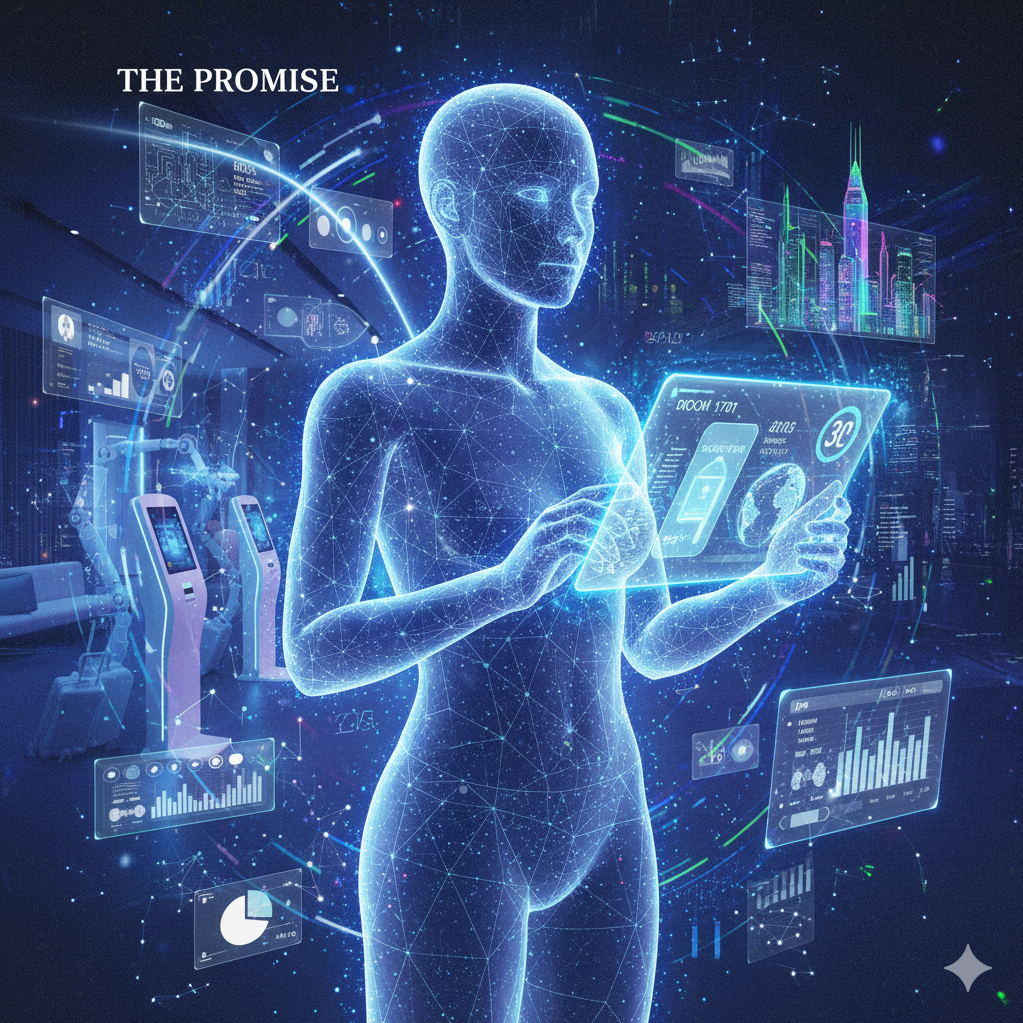Tech-Driven Convenience (Without Losing Soul)
The Promise & The Paradox
The hospitality industry is surfing a powerful wave of innovation. From mobile check-in to digital keys, voice assistants, and service robots, tech is reshaping the guest journey.
But there’s a catch: when convenience comes at the cost of human connection, the result can feel cold or mechanical.
Welcome to the crossroads where efficiency collides with emotion.
As noted in the joint report by Oracle Hospitality + Skift, the so-called three “C’s” of hotel tech, Comfort, Control & Convenience, now dominate guest expectations.
For example, over 60 % of hospitality executives worldwide agreed that a fully contactless experience - check-in/out, digital key, food & beverage - is likely to be mainstream in the next few years.
Yet: In the new global study by h2c GmbH (2025) surveying 171 hotel chains (11 000+ properties) found while 78 % of hotel chains say they are already using AI, only 6 % have a truly company-wide AI strategy - and the average “reliance score” on AI is just 4.7/10.
In short, the tools are there, the appetite is there, but the integration, the human-tech balance, and the emotional quality of the stay are far from solved.
Why It Matters Now
Guest expectations have shifted: According to EHL Graduate School’s “Technology Trends in Hospitality 2025” article, contactless, mobile-first, IoT-enabled guest experiences are no longer “nice-to-haves” but expected.
Labor & operational pressures: With staff shortages, rising costs and high guest volumes, automation is seen as a lever to maintain quality while controlling costs.
Brand differentiation: Technology now is a differentiator, but one that must feel human.
Revenue & data potential: Tech not only supports convenience, it enables deeper guest data, personalization and ancillary revenue.
Key Trends to Watch
Contactless & Mobile Expansion
Mobile check-in/out, digital room keys, mobile F&B ordering: these are no longer experiments, they’re baseline. According to Oracle/Skift, 53.6 % of travellers said they wanted mobile check-in/out as a permanent feature.
AI & Automation in Guest Services
From chatbots to voice assistants, AI is increasingly used for guest communications and predictive guest services. But the h2c study shows while adoption is high (78 %) the depth of integration is shallow (only 11 % of chains have dedicated AI budgets).
IoT, Smart Rooms & Personalisation
Voice-activated room controls, connected devices, smart thermostats, lighting and entertainment all enable a more tailored room experience. EHL notes this is key for “connected stays” in 2025.
Back-of-House Automation & Workforce Enablement
Technology isn’t just guest-facing: operations are being transformed too. For example, robots for housekeeping, voice assistants for staff, digital tasking systems. This frees staff for more guest-centric roles rather than routine tasks.
The “Emotion Gap” - Tech That Feels Cold
Here lies the risk: When automation overtakes human touch, guests may feel neglected, de-humanised or unsettled..
Best-Practice Principles: Tech With Heart
Here are some guidelines to ensure your tech strategy keeps the emotion while reaping the efficiency:
Design for augmentation, not replacement: Use tech to enhance the human service. For instance, mobile check-in frees staff from front-desk queues so they can engage more personally with guests on arrival.
Balance convenience & surprise: Automation should remove friction, but service should still be warm.
Respect data & privacy: Being transparent about data usage is the new trust. Personalization is great, but guests are more and more aware.
Measure beyond tech uptake: Focus on “Did guest satisfaction improve?”, “Did staff free-up time for?”, “Did RevPAG increase?”.
Some Key Numbers to Keep in Mind
78 % of hotel chains report using AI solutions today; 89 % plan to expand AI applications in the next 12–24 months.
60 %+ of hoteliers expect fully contact-less hotel transactions to be mainstream in the near-term.
The global “smart hospitality market” is projected to grow strongly, for example, one chart shows dramatic year-on-year expansion from 2024 to 2030.
A recent “Top 10 Hospitality Technology Trends for 2025” survey lists mobile/in-room integration, agentic AI, and touchless electronics as high priority.
Questions to Reflect On
Which tech rollout could free up staff time to be more present with guests (rather than replace staff entirely)?
How will we measure success: is the metric “rooms with digital keys” or “guest satisfaction / repeat bookings / incremental spend”?
How are we training our team for this future? Are we elevating staff from operational roles to experience roles?
Are we transparent with guests about when tech is doing the heavy-lifting (and when humans are stepping in)?
Final Thought
In the race to be “modern”, hospitality cannot lose its greatest asset: human connection. Technology is the enabler but not the replacement.
When a guest unlocks their room with their phone, adjusts the temperature via voice, and receives a personalized in-room suggestion based on their preferences —> that’s convenience.
But when they also receive a genuine smile, a local recommendation from a staff member, a warm gesture that can’t be programmed —> that’s hospitality.
The winners in 2025 and beyond will be the ones who can let the tech do the heavy lifting and let the human service shine.

